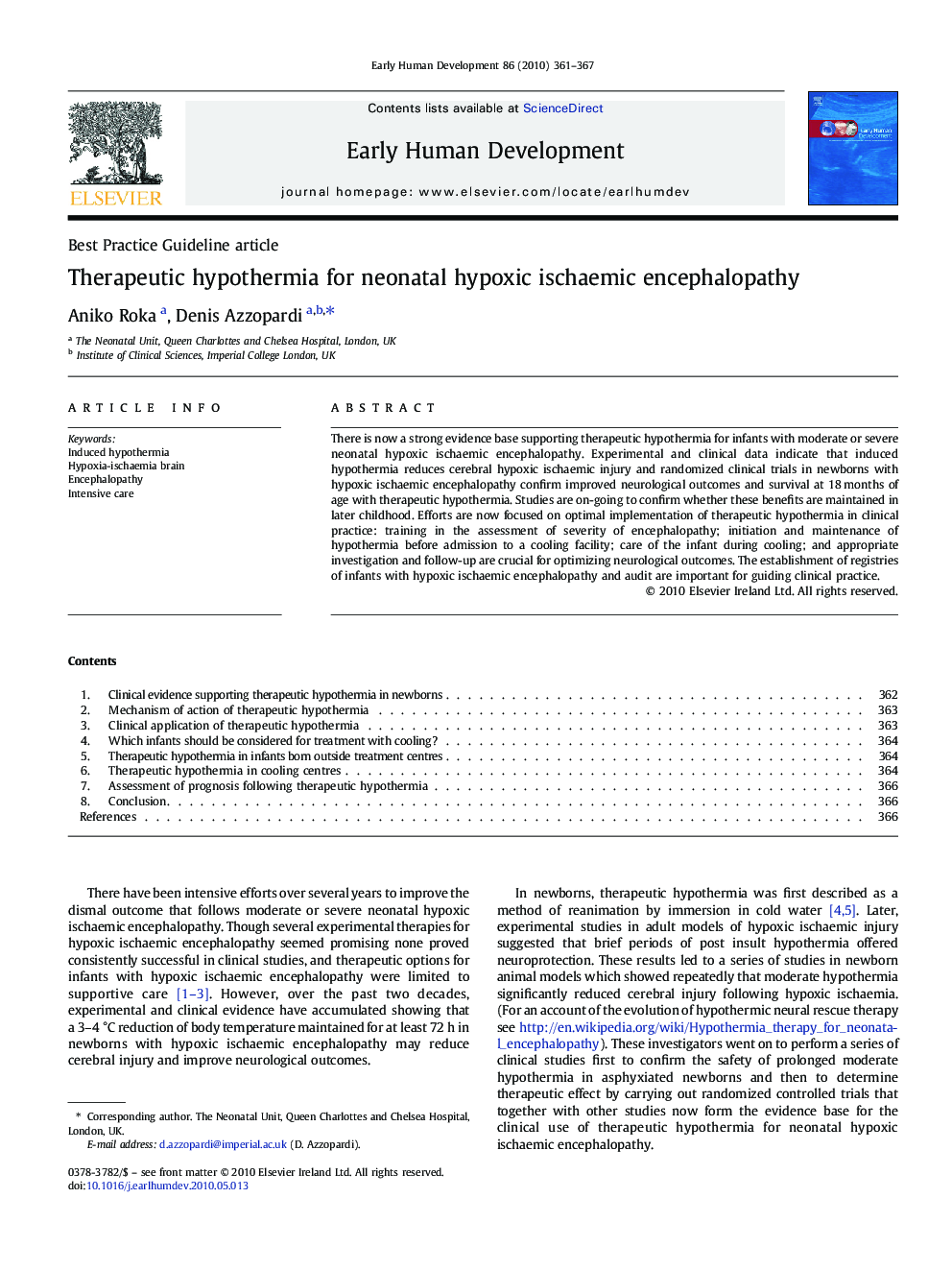| Article ID | Journal | Published Year | Pages | File Type |
|---|---|---|---|---|
| 3917631 | Early Human Development | 2010 | 7 Pages |
There is now a strong evidence base supporting therapeutic hypothermia for infants with moderate or severe neonatal hypoxic ischaemic encephalopathy. Experimental and clinical data indicate that induced hypothermia reduces cerebral hypoxic ischaemic injury and randomized clinical trials in newborns with hypoxic ischaemic encephalopathy confirm improved neurological outcomes and survival at 18 months of age with therapeutic hypothermia. Studies are on-going to confirm whether these benefits are maintained in later childhood. Efforts are now focused on optimal implementation of therapeutic hypothermia in clinical practice: training in the assessment of severity of encephalopathy; initiation and maintenance of hypothermia before admission to a cooling facility; care of the infant during cooling; and appropriate investigation and follow-up are crucial for optimizing neurological outcomes. The establishment of registries of infants with hypoxic ischaemic encephalopathy and audit are important for guiding clinical practice.
